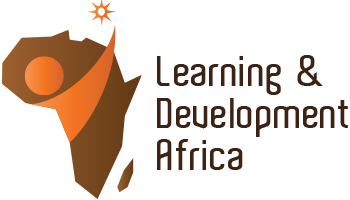Call For Conference Speakers
Guidelines

Learning and Development (L&D) Africa is calling for speakers for oral presentations for the Annual L&D Africa Conference 2024 in Nairobi, Kenya-East Africa to be held from 4th to 6th September 2024. The conference, which will be a hybrid event combining in-person and virtual participation, is centered around the theme “Embracing Tomorrow, Unlocking Africa’s Possibilities.” It aims to bring together L&D experts, Academicians, Leaders, Educators, innovators, etc. to explore cutting-edge strategies and practices in the field of Learning and Development(L&D) and delve into the crucial role of L&D in propelling sustainable development throughout Africa.
The potential of individuals both in formal employment and business stands to be one of the most important long-term investments any country in Sub-Saharan Africa can make for its people’s future prosperity and economic growth. Investing in training and continuous learning provides people with the skills and knowledge to realize their potential. With research indicating (World Development Report 2019) that the frontier for skills is moving faster than ever before. This therefore calls for an urgent and collective effort by not only Learning and development practitioners but also governments, private sector, and not-for-profit sector players to build human capital.
Today, African countries need to gear up toward preparing their workforce for a tomorrow that might be characterized by tremendous challenges and opportunities that will not only be driven by digital transformations and many others.
You are invited to submit presentations covering any of the following conference topics:
1. The role of learning & development in supporting the AU’s Agenda 2063.
Agenda 2063 is Africa’s blueprint and master plan for transforming Africa into the global powerhouse of the future. It is the continent’s strategic framework that aims to deliver on its goal for inclusive and sustainable development and is a concrete manifestation of the pan-African drive for unity, self-determination, freedom, progress, and collective prosperity pursued under Pan-Africanism. What is the role of Learning & Development in Supporting the AU’s Agenda 2063? In what ways can this be achieved practically by the private sector, not-for-profits, and governments?
2. Role of African governments in fostering human capital development for a better tomorrow.
Governments have access to all regions. How should they foster human capital development for a better tomorrow? How can they do so more effectively?
3. Digital transformations and the evolving nature of work.
This session will delve deeper into the way the nature of work is changing as a result of technological advancement. This session will look at how to demystify the perceived notion that robots will soon take away humans’ jobs. This exciting session will look into how work is constantly reshaped by technological progress, and how technology is changing the skills that employers seek the session will further seek to discuss possible ways African governments can best respond to technological changes since investing in human capital must be a priority for governments for workers to build the skills that are in demand in the labor market.
4. Gender gaps and access to skill programs in emerging markets in Africa.
The session will delve into a conversation around traditional business training programs and any evidence of transformative impacts. It will further look into social emotional and gender-oriented training as well as mentorships and network interventions. Furthermore, this session will look at initiatives that support learning for holistic and impactful benefits.
5. The Future of Learning and Development in Africa
This session will explore the emerging trends and technologies in L&D that can support sustainable development in Africa, including e-learning tools, virtual training platforms, and mobile learning solutions.
6. Fostering learning in remote locations.
While a part of Africa has embraced technology, many Africans living in rural areas do not have access to technology facilities. This is widening the digital divide hence in what ways can inclusive learning be supported at all levels?
7. Collaboration and Partnership for Sustainable Learning and Development in Africa.
This session will highlight the importance of collaboration and partnerships in achieving sustainable development in Africa through L&D, including partnerships between the private sector, governments, and civil society. This can help foster innovation, and new entrepreneurial opportunities and support the enhancement of customer satisfaction across the market ecosystem.
8. Sustainable Leadership Development
This session will examine how L&D programs can be used to develop a pipeline of leaders to drive sustainable development in Africa. This session will delve into understanding the ways and means of building a culture of lifelong learning and leadership in youth.
Author Guidelines:
- submit a topic proposal with a description of the methodology, data used, and expected results
- On submission, name your file with your name and the name of your topic eg; Martin_Cole_SustainableDevelopment_LND_2024.
Paper Submission Guidelines and Time Frames
Learning and Development (L&D) Professionals and Academicians seeking to present should click on the link below to submit their presentations before 31st July 2024:
| Important Deadlines | Deadline Dates |
|---|---|
| Final Acceptance of Papers | 18 August 2023 |
| Last day for registration for presenters | 1 September 2023 |
| Participants Registration Deadline | 8 September 2023 |
| Conference Date | 15 September 2023 |
